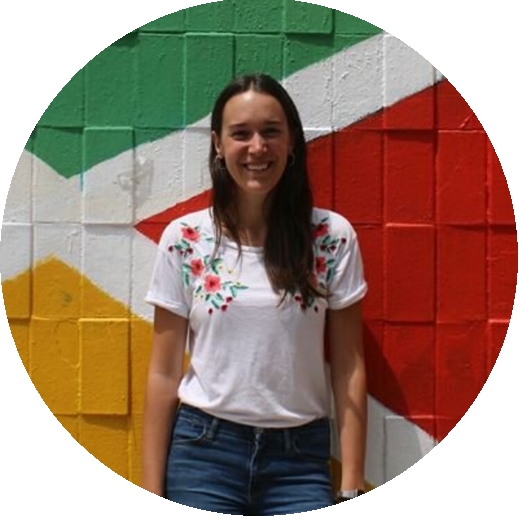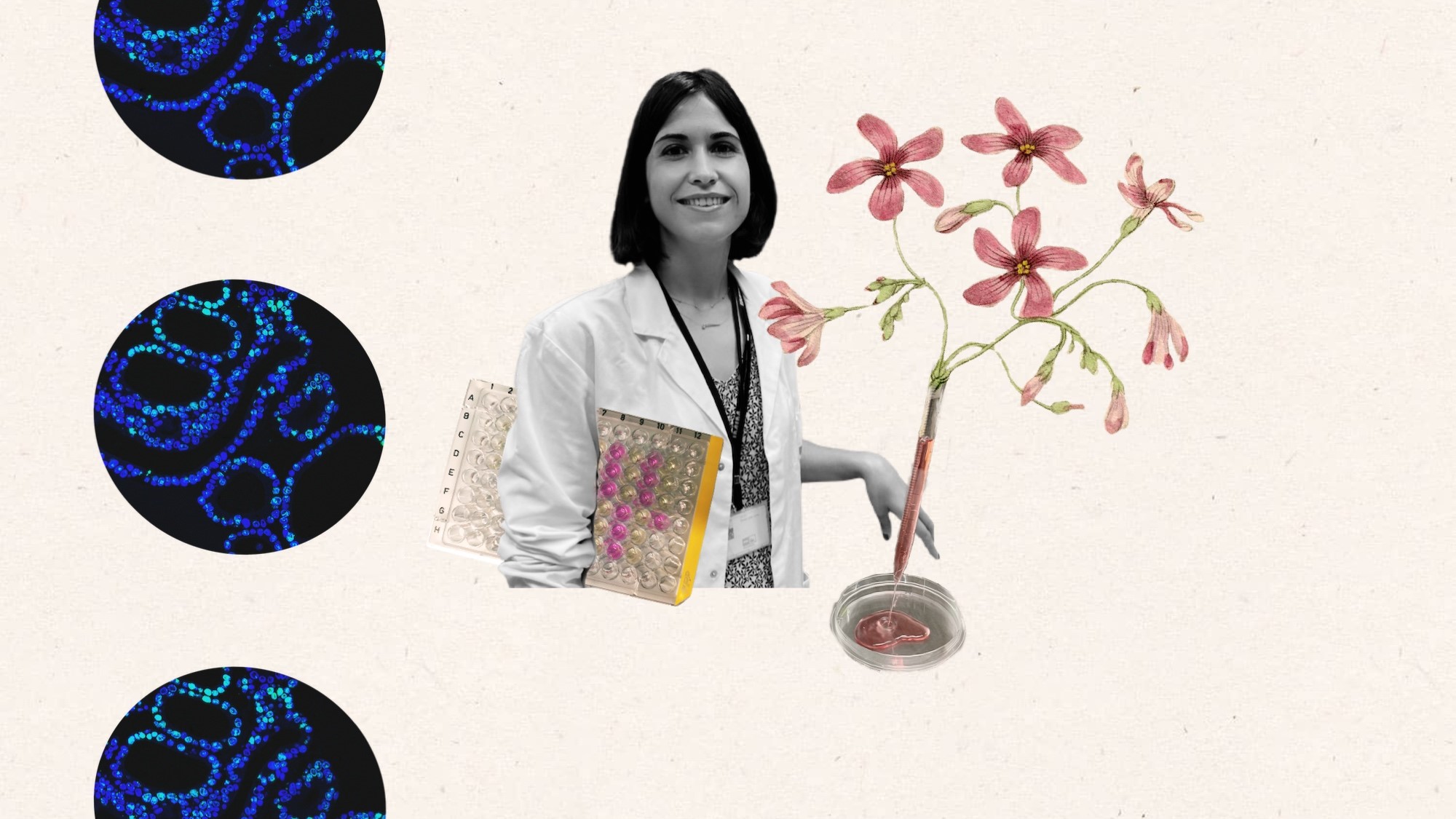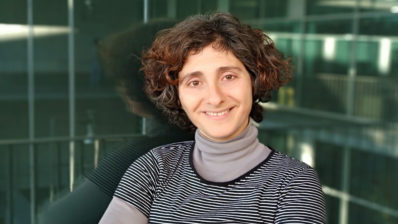Teresa Lobo Jarne (Madrid, 1987), is a postdoctoral researcher in the Molecular mechanisms of cancer and stem cells research group at the Hospital del Mar Medical Research Institute (IMIM), where she studies mechanisms of resistance to chemotherapy in colorectal cancer.
Her childhood was spent immersed in science fiction novels and films written by Isaac Asimov or Michael Ende. And this is where her passion for science comes from. Because in these books, “without having to see the alienating image of a mad scientist, there were trips to space, robots, microbes, etc.”, which fascinated her.
Upon reaching university, Teresa chose a career in biotechnology “because it touched a bit of everything.” And when she finished her degree, she worked as a salesperson for a pharmaceutical company. But this stage ended the day she saw a poster advertising the company’s R&D department. She then realized that “I did not want to be in the commercial part, I wanted to be on the other side!”, she says excitedly.
That is why she studied a master’s degree in research and after doing her doctorate in Madrid, she came to the IMIM to do a postdoc. “It was the natural next step and at least I wanted to know what it was like to continue investigating. Now I have been doing so for two years and I want to continue a little longer. But the next phase, which is Principal Investigator, I’m not sure if I see myself there, ”she says.
At this time, Teresa is not clear on how her scientific career will continue. “The precariousness of the job means that with 35-40 years you continue to have 2-year scholarships. And this, when you are old enough to start a family, makes you think about it a lot!”, she confesses. But this does not mean that her vision is less valid. On the contrary. “I am normal, I am not a super researcher with the aspiration to be a Nobel prize winner. I come to work here and I have the usual doubts and problems“. Perhaps for this reason, her testimony can inspire other women and girls to follow their own path in science.
We invite you to get to know her a little more!
Is a scientist born or made?
Made.
What is your field of study?
My field of work is biomedicine. Specifically, I am investigating mechanisms of resistance to chemotherapy in colorectal cancer.
What kind of student were you?
I was a diligent student, used to get good grades. I also had a good time in class and from the age of 10 until I finished high school I was combining my studies with basketball.
What would you have been if you had not dedicated yourself to science?
I think I would have liked to be a sci-fi screenwriter or director. I could imagine the answers to the questions I am asking myself now and bring them to the screen.
If you could travel in time, what would you choose: past or future?
Definitely future.
How do you think your peers would describe you?
I think you should ask them! A predoctoral researcher with whom I have worked hand in hand these two years is going to defend her doctoral thesis in the next few days. In her acknowledgements she has written that I am always ready to help, and that I bring serenity and organization to the laboratory.
What would you like to add to the sentence: it has finally been solved …?
Job stability in science.
Which preconceived idea about scientists do you think is true and which is false, and why?
A preconceived idea that has some truth in it is that we are a bit addicted to the laboratory. Especially at the beginning of our research. When we work on a project, we get involved in such a way that we go to work on weekends, we read papers outside of working hours, and if we consider changing groups, we have trouble leaving “that project halfway.”
And the one that is totally wrong is that scientists are gentlemen in white labcoats who do experiments on their test tubes. What society has to do is be more open and realize that the range of scientists is very wide. All the initiatives in science that are made to change this image are very important.
What is your best failure?
It’s not being able to follow a cooking recipe to make a good stew, when I spend hours following an experimental protocol in the lab!
The best advice you’ve ever been given.
To try to realize my dreams and aspirations by investing time in knowing my mental health, and above all learning to relativize. It was given to me by a researcher during my last years of the doctorate. At that time, I felt the pressure to finish experiments, to be able to publish or decide whether to pursue a research career.
“Two things are infinite: the universe and human stupidity. And I’m not sure about the first one”
Albert Einstein
Who is your favorite scientist and why?
One of my favorites is Rosalind Franklin. She did not get the recognition in life that she deserved, despite being a pioneer in her field. She contributed in an essential way to the development of the first model of the DNA molecule. Her story of perseverance and injustice amazed me from the moment I heard it.
Would you recommend us a book?
Momo, by Michael Ende.
A musical group?
Janis Joplin.
An artist?
Paula Bonet.
A film or documentary?
Interstellar, by Christopher Nolan.
A Twitter account to follow?
And finally, a digital communication medium?
Thank you very much Teresa!







